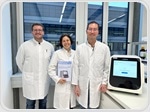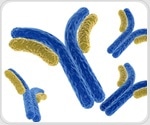
|
|
|
| |

|
|
| |
The latest drug discovery news from News Medical |
|
|
|
|
|
 | | |  This study addresses endosomal escape in oligonucleotide therapies and how engineered peptides can enhance intracellular drug delivery efficiency. This study addresses endosomal escape in oligonucleotide therapies and how engineered peptides can enhance intracellular drug delivery efficiency. | | | | |  With its ability to enhance predictive accuracy, quantum computing may significantly lower R&D costs in pharmaceuticals by reducing candidate failures. With its ability to enhance predictive accuracy, quantum computing may significantly lower R&D costs in pharmaceuticals by reducing candidate failures. | | | | |  Nuclera, the biotechnology company enabling rapid access to high-quality proteins and leadXpro, a specialist in structure-based drug discovery for membrane proteins, today announced a scientific partnership. Nuclera, the biotechnology company enabling rapid access to high-quality proteins and leadXpro, a specialist in structure-based drug discovery for membrane proteins, today announced a scientific partnership. | | | | |  As instigators of immunity, monoclonal antibodies are marvels of modern medicine, lab-made proteins that can treat cancers, autoimmune diseases, and many other conditions. As instigators of immunity, monoclonal antibodies are marvels of modern medicine, lab-made proteins that can treat cancers, autoimmune diseases, and many other conditions. | |
|
|
|
| | How would you rate today's newsletter?
| |
|
|
|
| |
 |
Stay updated with the latest in health and medical news! Follow News‑Medical.net on Google News for real‑time updates. Click here to follow us now. |
| |
|
|
|
|
|